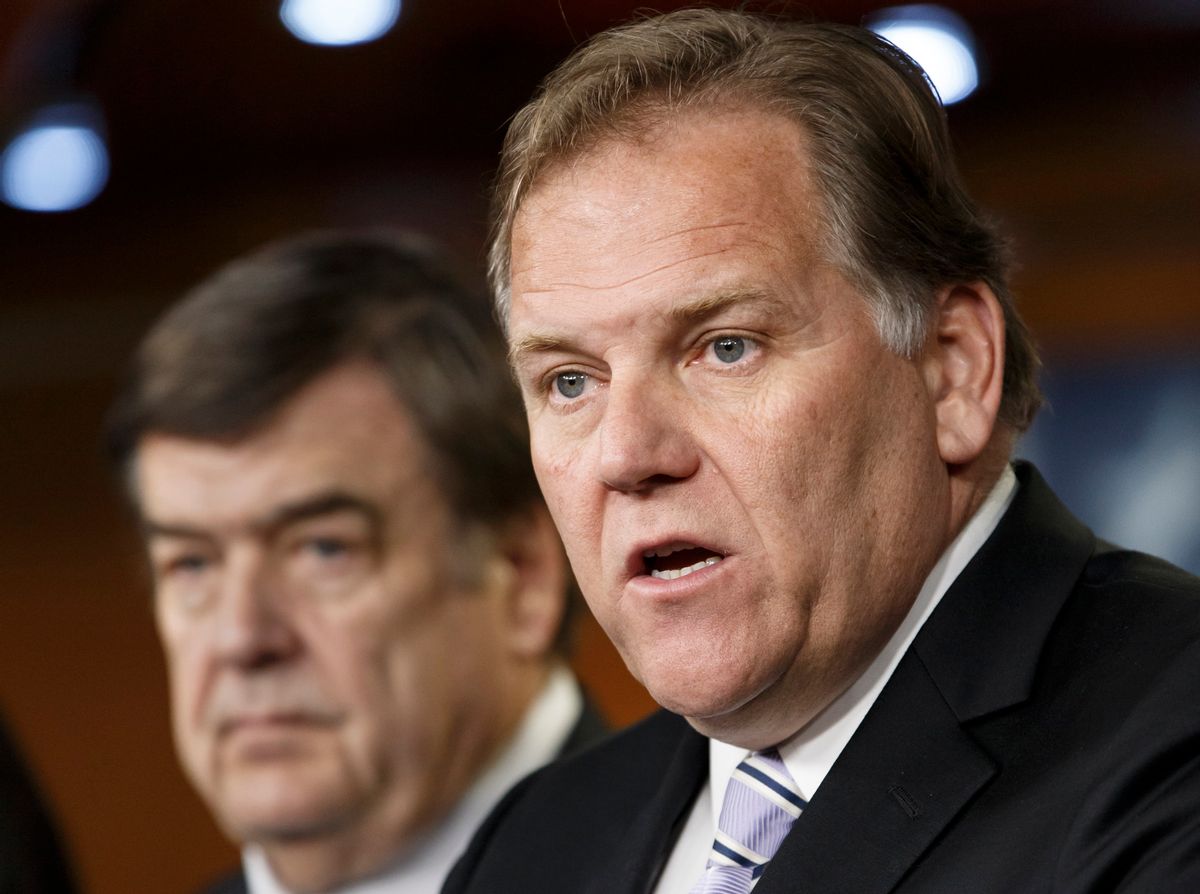A House bill aimed at reforming NSA bulk data collection practices will not go through the House Judiciary Committee but rather the Intelligence Committee, much to the chagrin of NSA critics.
The FISA Transparency and Modernization Act, introduced on Tuesday, modifies the 1978 Foreign Intelligence Surveillance Act and aims to get the spy agency out of the practice of bulk communications data collection. However, authored in part by NSA cheerleader GOP Rep. Mike Rogers, the legislation is modest compared to its rival USA Freedom Act and -- as I've noted of most proposed legislative reform efforts regarding the spy agency -- would do little to dismantle our prevailing state of corporate-government surveillance.
Nonetheless, as Spencer Ackerman noted in the Guardian, the decision to move the bill through the Intelligence rather than Judiciary Committee (perhaps a more standard route) "reveals a subterranean and intense fight within the House about the future course of U.S. surveillance in the post-Edward Snowden era." Via the Guardian:
[T]he House judiciary committee thought it was the natural choice for primary legislative jurisdiction over the Fisa Transparency and Modernization Act, introduced on Tuesday. While the intelligence committee oversees US spy activities, the judiciary committee has oversight responsibilities over surveillance law.
The judiciary committee is also a stronghold of support for a rival bill, the USA Freedom Act, two of whose principal sponsors are its top Democrat and a former GOP chairman. The Freedom Act also ends NSA bulk collection, but includes more civil libertarian provisions, such as the prior approval of a judge to force phone companies to turn over customer data and a threshold requirement of relevance to an ongoing investigation to secure such approval.

Shares